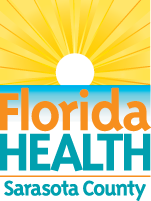It's a New Day in Public Health.
The Florida Department of Health works to protect, promote, and improve the health of all people in Florida through integrated state, county, and community efforts.
Rabies
Environmental Public Health
Sarasota EPH Office- DOHSarasotaEH@FLHealth.gov
- 941-861-6133
-
Fax
941-526-1535 -
Sarasota Office Location
1001 Sarasota Center Blvd
Sarasota, FL 34240
- 941-861-3310
-
Fax
941-526-1536 -
Venice Office Location
4000 Tamiami Trail S.
Room 121
Venice, FL 34293
Rabies: serious but preventable
Rabies is a fatal disease that can be prevented but not cured. People bitten by rabid animals should seek immediate treatment to prevent contracting the disease. It is important not to handle wild animals, to be aware of animals exhibiting unusual behavior, and to vaccinate pets against rabies.
In Florida, raccoons, bats, foxes, and unvaccinated cats are the animals most frequently diagnosed with rabies. Other animals at high risk for rabies include skunks, otters, coyotes, bobcats, and stray or unvaccinated dogs and ferrets.
Rabies is spread through contact with the saliva and nervous tissue from a rabid animal through a bite, scratch, or contact with mucous membranes such as the eyes, nose, or mouth.
More information from the Florida Department of Health:
- Rabies Information
Rabies surveillance data and maps, educational materials and more - Frequently Asked Questions about Rabies
What do rabid animals look like, what to do if bitten, and more.
How to Report an Animal Bite
All animal bites should be reported to:
- Sarasota County Animal Services, 941-861-9500
- Read "What do I do if an animal bites me?" (Florida Department of Health)
Animal Services notifies DOH-Sarasota's Environmental Health staff, who assess bites for possible rabies exposures. DOH-Sarasota also reports bites to the Florida Department of Health if necessary. Animals (including certain pets) may be quarantined and monitored for rabies.
Medical personnel should complete an Animal Bite Report (Rabies Exposure Report) and send it to Animal Services:
- Animal Bite Report [273KB PDF - updated 3-16-16]
Download, complete, and submit online or print and fax - Rabies information for medical personnel...
Rabies and Pets
Vaccinate them!
Florida statutes and Sarasota County Code of Ordinances, Chapter 14 require all dogs, cats and ferrets to be vaccinated against rabies. Animals involved in a bite or exposure are checked for current tags and vaccinations. DOH-Sarasota's Environmental Health Services works closely with Sarasota County Animal Services to ensure animals have current tags and vaccinations.




Connect with DOH